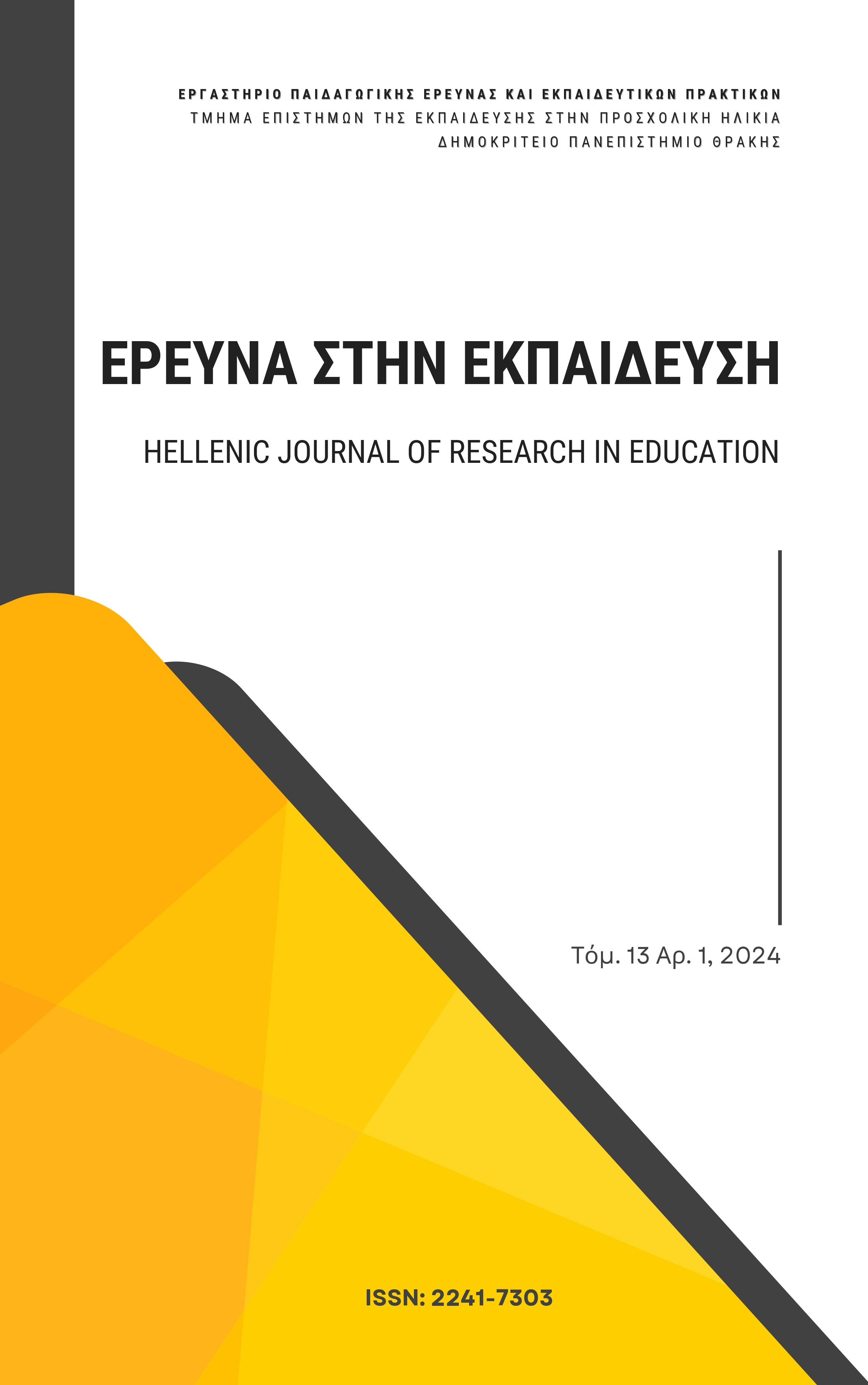Η μεθοδολογία της «σχάρας διπολικών εννοιών» (repertory grid). Διερευνώντας τα οφέλη συμμετοχής σε Προγράμματα Erasmus+ ως παράδειγμα εφαρμογής της

Περίληψη
Ο σκοπός του άρθρου αυτού είναι διττός: από τη μια ερευνητικός, όπου επιχειρούμε να διερευνήσουμε τις πεποιθήσεις των εκπαιδευτικών πρωτοβάθμιας εκπαίδευσης για τα οφέλη της συμμετοχής τους σε ένα πρόγραμμα Erasmus+ και από την άλλη μεθοδολογικός, όπου παρουσιάζουμε την χρησιμότητα της «σχάρας διπολικών εννοιών» (repertory grid) ως εργαλείου συλλογής ποιοτικών δεδομένων. Η «σχάρα διπολικών εννοιών» χρησιμοποιείται συνήθως συμπληρωτικά ή συνεργατικά με τις αφηγηματικές ή τις ημι-δομημένες συνεντεύξεις και έχει στόχο την αποτύπωση της ποικιλομορφίας των οπτικών των υποκειμένων αποφεύγοντας την επίδραση του/της ερευνητή/τριας, η οποία είναι πιθανό να προκύψει στις παραδοσιακές ημι-δομημένες συνεντεύξεις. Εφαρμόσαμε την «σχάρα διπολικών εννοιών» στην εν λόγω έρευνα, ώστε να αναδειχθεί η μεθοδολογική της συμβολή, καθώς ούτε στην Ελλάδα, ούτε στο εξωτερικό εντοπίστηκε κάποια αντίστοιχη εκπαιδευτική έρευνα για τα οφέλη της συμμετοχής των εκπαιδευτικών σε ένα πρόγραμμα Erasmus+ με αυτό το εργαλείο. Η ανάλυση των αποτελεσμάτων της έρευνας φανερώνει ότι, όταν οι εκπαιδευτικοί αναφέρονται στα οφέλη της συμμετοχής τους σε ένα πρόγραμμα Erasmus+ (στοιχεία-elements), ως κύρια οφέλη τονίζουν ό,τι αφορά σε πολιτισμικό πλαίσιο (κουλτούρα, φιλία, ταξίδια). Ωστόσο, όταν συζητάνε συνδυαστικά για τα οφέλη μεταξύ τους (δίπολα-constructs), έτσι ώστε να γνωστοποιηθούν οι μη φανερές πεποιθήσεις τους, κυρίως κάνουν λόγο για την ολόπλευρη ανάπτυξη του ατόμου, έπειτα τις σχέσεις-συνεργασία που αποκομίζουν από το πρόγραμμα, για την εκπαίδευση και τη διδασκαλία τους και στη συνέχεια για το ταξίδι, τον πολιτισμό και την επαγγελματική ανάπτυξη. Επίσης, μέσω της έρευνας δόθηκε η δυνατότητα να εντοπιστούν παράγοντες που μπορεί να επηρεάζουν τις πεποιθήσεις των εκπαιδευτικών για τα οφέλη ενός τέτοιου ευρωπαϊκού προγράμματος.
Λεπτομέρειες άρθρου
- Πώς να δημιουργήσετε Αναφορές
-
Ευθυμίου Κ., & Χριστοδούλου Μ. (2024). Η μεθοδολογία της «σχάρας διπολικών εννοιών» (repertory grid). Διερευνώντας τα οφέλη συμμετοχής σε Προγράμματα Erasmus+ ως παράδειγμα εφαρμογής της. Έρευνα στην Εκπαίδευση, 13(1), 29–46. https://doi.org/10.12681/hjre.35568
- Τεύχος
- Τόμ. 13 Αρ. 1 (2024)
- Ενότητα
- Άρθρα

Αυτή η εργασία είναι αδειοδοτημένη υπό το CC Αναφορά Δημιουργού – Μη Εμπορική Χρήση – Παρόμοια Διανομή 4.0.
Τα πνευματικά δικαιώματα των άρθρων του περιοδικού ανήκουν στους συγγραφείς. Τα άρθρα διατίθενται με άδειες Creative Commons CC-BC-SA 4.0


